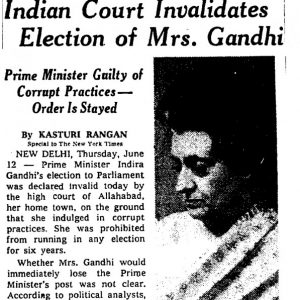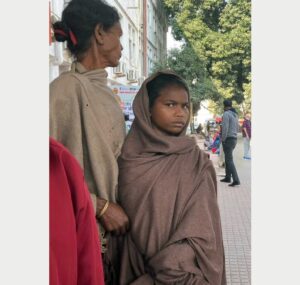
Constitutional democracy cannot be taken for granted: Decoding the Allahabad High Court’s Judgment of 12 June 1975

This essay is part of a series by Prof V. Krishna Ananth where he recalls the events that determined the course of politics in post-colonial India, sometimes reinforcing the “idea of India” and otherwise distorting that. The essays revolve around specific events and their consequences and the facts are placed in context and perspective to comprehend the times in which they are being recalled and re-presented. The series recalls the events on their anniversary, they do not follow a chronological order and are seen as moments in history.
On 12 June 1975, Justice Jagmohan Lal Sinha of the Allahabad High Court pronounced Indira Gandhi, the then Prime Minister, guilty of corrupt electoral practices and nullified her election as Member of Parliament from Raebareli in Uttar Pradesh. Justice Sinha also held that Indira Gandhi stood barred from contesting another election for a period of six years. The fact is the Honorable Judge could not have handed a different verdict as the law governing elections and the norms set for candidates had prohibited some of Indira Gandhi’s acts way back in January-February 1975. Forty-six years later, recalling the event, as much as the Emergency imposed on 25 June 1975 for which the Allahabad High Court decision was the immediate cause, is indeed a business of history. History, after all, is about recalling the past from the concerns of the present and, seen from the perspective enunciated by Benedetto Croce on…
Related Posts


Donald Trump’s Master Economic Plan I Opinion by Yanis Varoufakis




